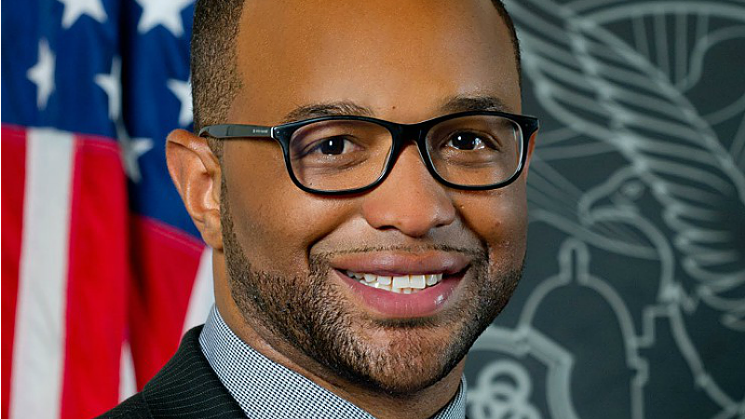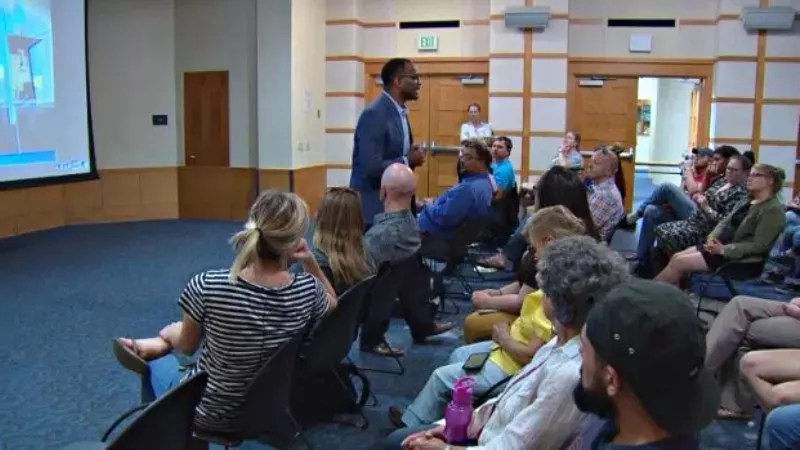
denvergov.org

Audio By Carbonatix
At an event last week, Denver City Councilman Albus Brooks revealed that he had battled an addiction to opioids. But he declined an interview request from Westword to talk in more detail about this ordeal, which came about as a result of treatment for cancer, even though opioid deaths are on the rise in Denver and across the state.
Brooks’s comments were made on August 16 at the Denver Public Library, where he threw his support behind creating a needle-injection facility. The suggestion for such a center comes from the Harm Reduction Action Center, whose executive director, Lisa Raville, told Westword contributor Bree Davies during an interview highlighted in a post published last February that Denver needs safe places for injection drug users.
As noted by CBS4, which covered the get-together on the 16th, no formal proposal for a center has been submitted to Denver City Council thus far. But Brooks appeared to be laying the groundwork for the introduction of such a plan at the DPL, where, as we’ve reported, at least six overdoses took place during early 2017. And during his talk, he got personal.
“I had cancer, and a fifteen-pound tumor was removed last year,” Brooks told the approximately one hundred attendees at the library gathering. “In the hospital they give you some crazy drugs, and I got hooked on opioids.”
This was a significant revelation, but it largely fell through the media cracks. The CBS4 piece focused on the call for a needle-injection facility, using the quote as ancillary color, as did an August 17 Colorado Politics item that cited the station’s reporting.

Denver councilman Albus Brooks at the Denver Public Library event where he shared his revelation about addiction to opioids.
Courtesy of CBS4
When Westword asked to chat with Brooks about his addiction statement, a spokesperson turned us down on his behalf, saying that Brooks didn’t want his story to distract from the need for the center.
Until Brooks decides to speak at greater length about his opioids struggles, we won’t know if he now wishes he hadn’t talked so openly about them. But he does have a history of making public statements he later regrets or retracts.
In 2012, for example, Brooks responded to critics of his support for Denver’s urban camping ban by inviting members of the homeless community to stay at his home in a Facebook post and demanding that a Twitter user apologize a year in the future for attacking his stance. In a statement afterward, he wrote, “Unfortunately, I acknowledged the attacks on Facebook when I should have ignored the taunting, [and] I learned a powerful lesson.”
He took another step too far on social media in September of last year, when he deleted a number of tweets in which he seemed to imply that advocacy organization Project VOYCE hadn’t criticized him when he was supporting the group financially. Project VOYCE responded by returning Brooks’s $1,000 donation.
Obviously, Brooks’s comments about an opioids addiction are very different from these earlier controversies. But at this point, at least, he isn’t ready to elaborate on them.